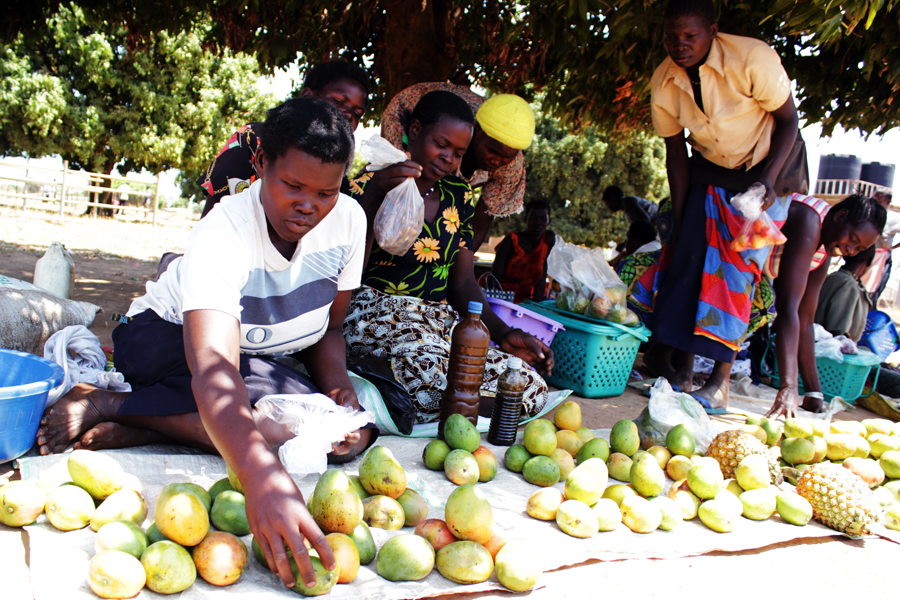Trucks, buses and cars cruise along the road, tearing up the loose dirt and creating a cloud of the red dust. It’s hot and it’s dry, and nothing looks better right now than the fruit stands on the side of the road, offering a cool, sweet treat to passengers on their long journey.
Some women have been working at this stand for six years. They buy honey, mangos, pineapples and other fruit in bulk and then re-sell them for a profit. They buy 30 mangoes for $1.20 and can sell them to customers for $2.00 – a 66% profit.
For Janet, a single mother of five children, this small business of buying and selling fruit is what allows her to provide for her family. “This is the only way I can feed my children and pay school fees,” she says.
Since some of the women have joined Invisible Children’s Village Savings and Loan Associations (VSLA), they have been able to expand their small businesses. As members of VSLA, they have access to group savings and have been able to take out small loans to invest more in their produce stands. A few are planning on branching out into more profitable commodities in the future, like beans and maize.
VSLA facilitators teach members how to track and manage finances, take loans, develop income generating activities, and even gain basic literacy. Participants learn how smart use of money now can lead to bigger earnings and interest saved in the future.
Dust plumes from a passing matatu taxi. The driver pulls over to the side of the road and the passengers slide open the windows. The women leap up with their bags of mangoes and bottles of honey, ready to make a sale.


Think people should hear about this?